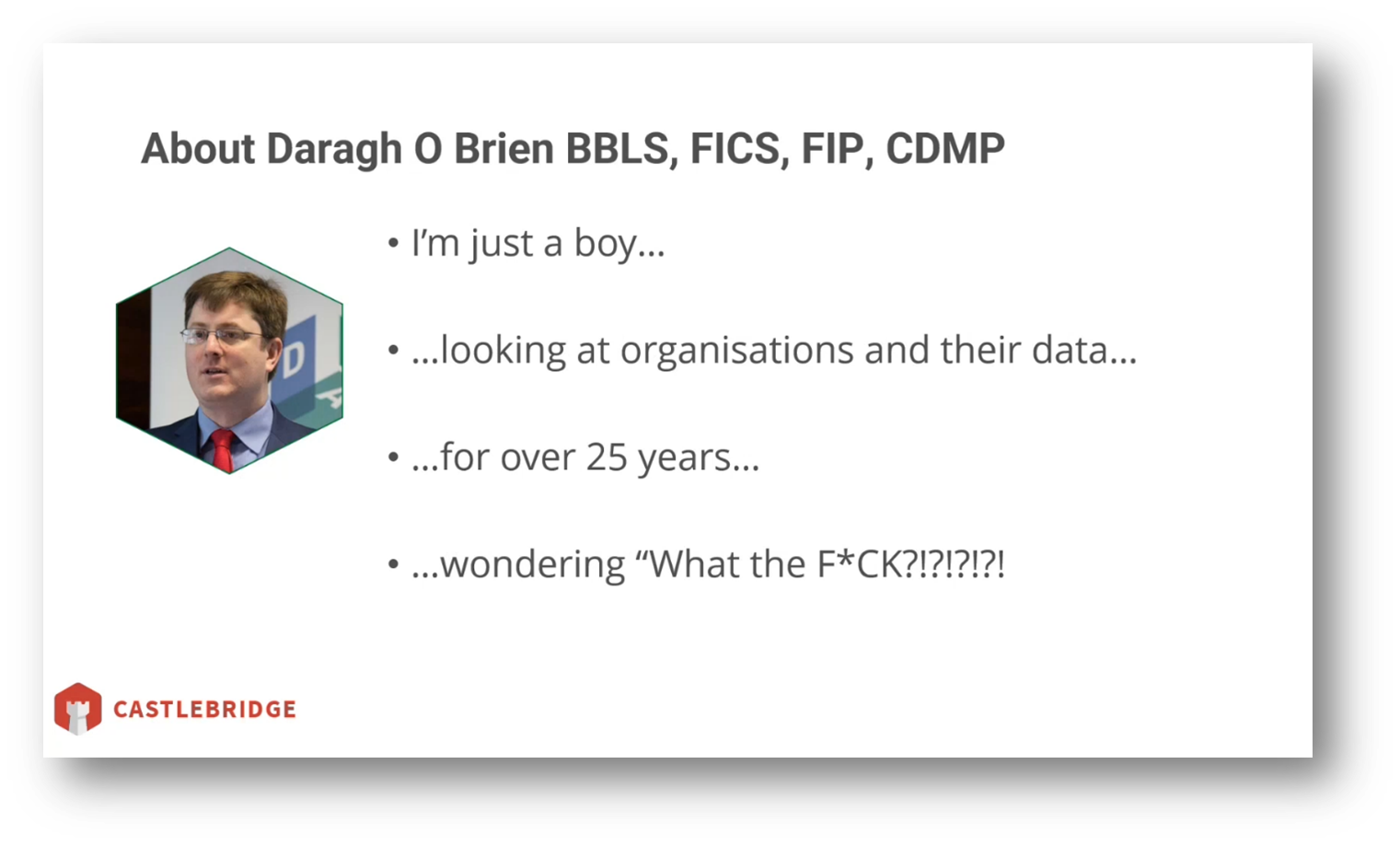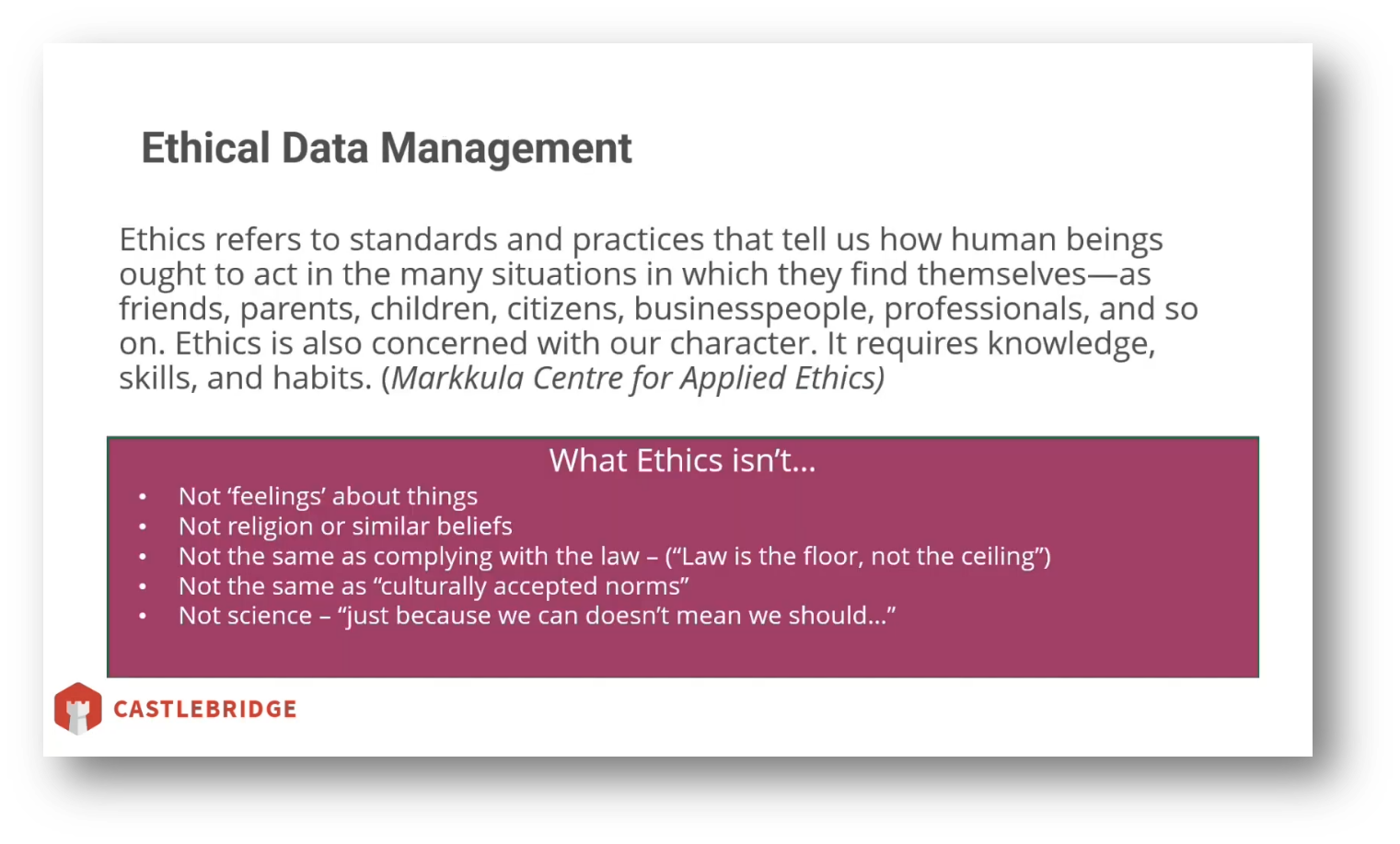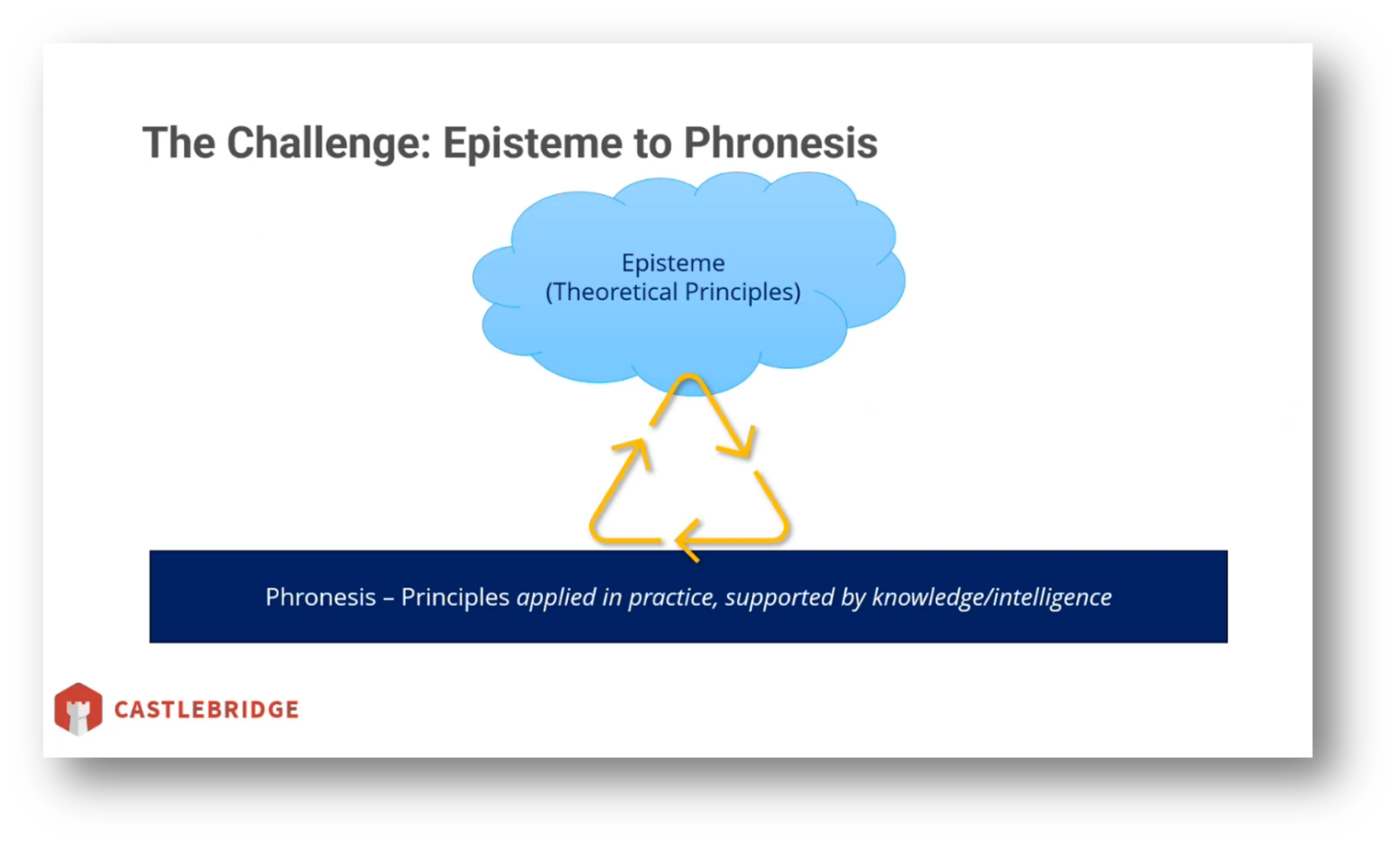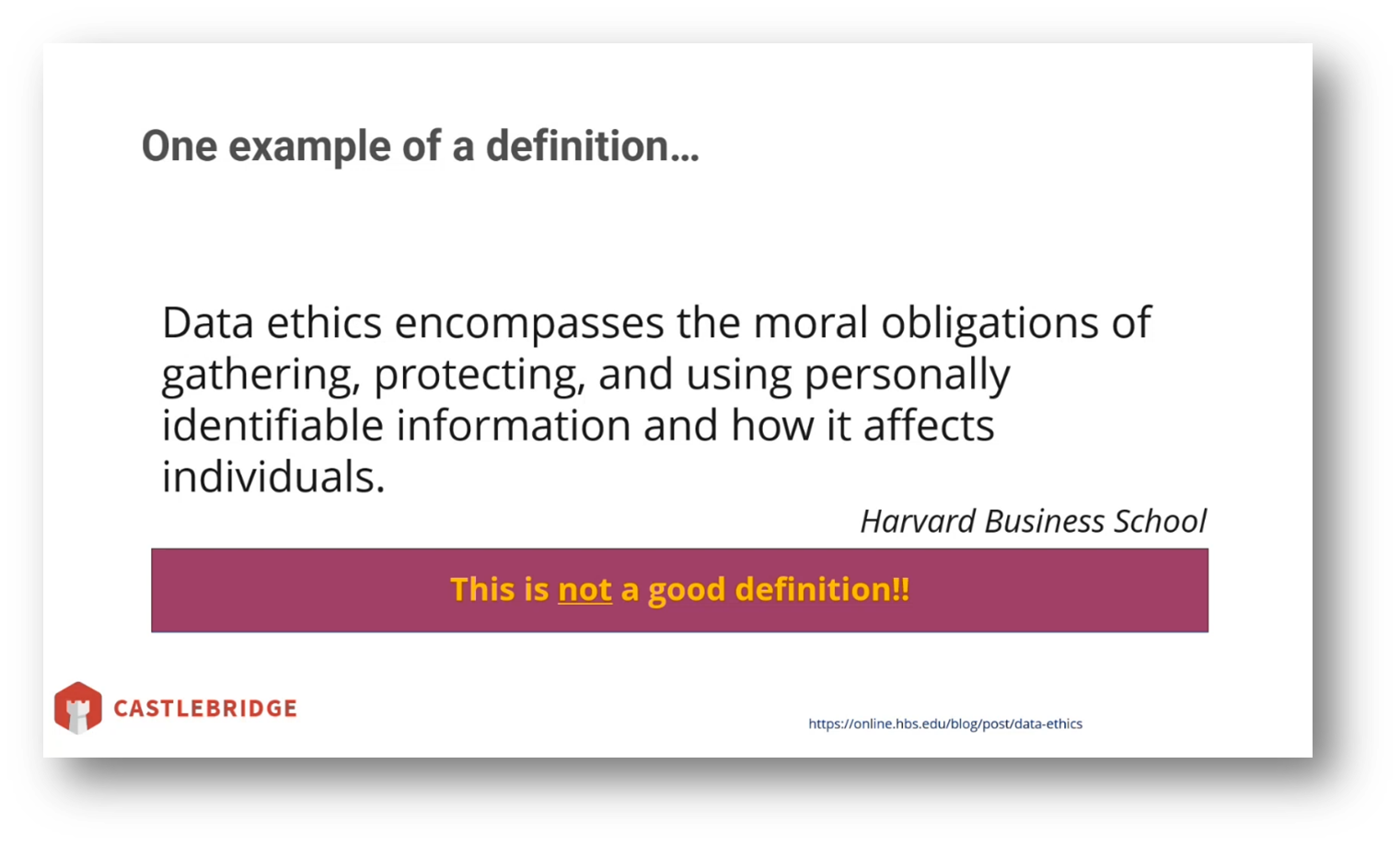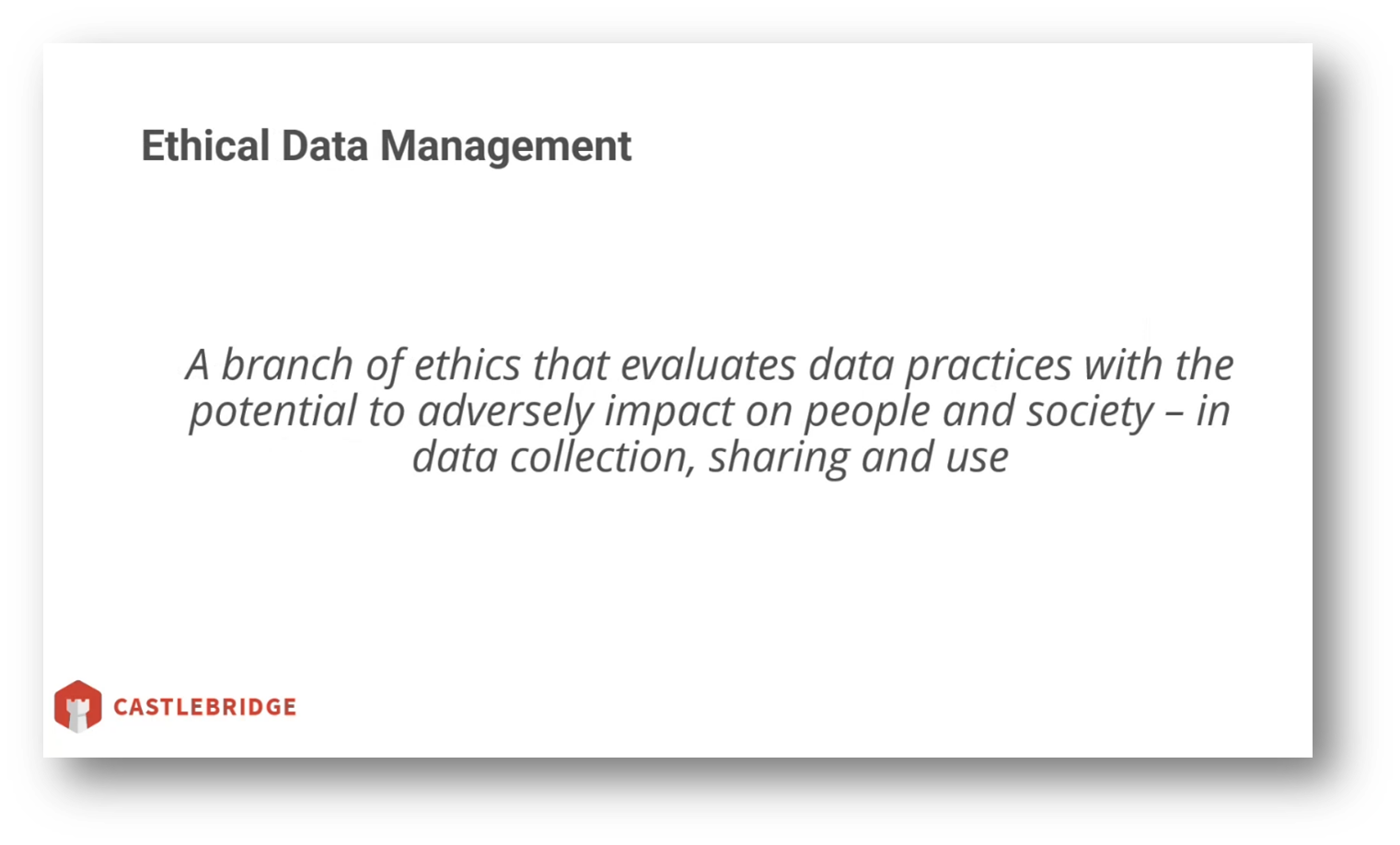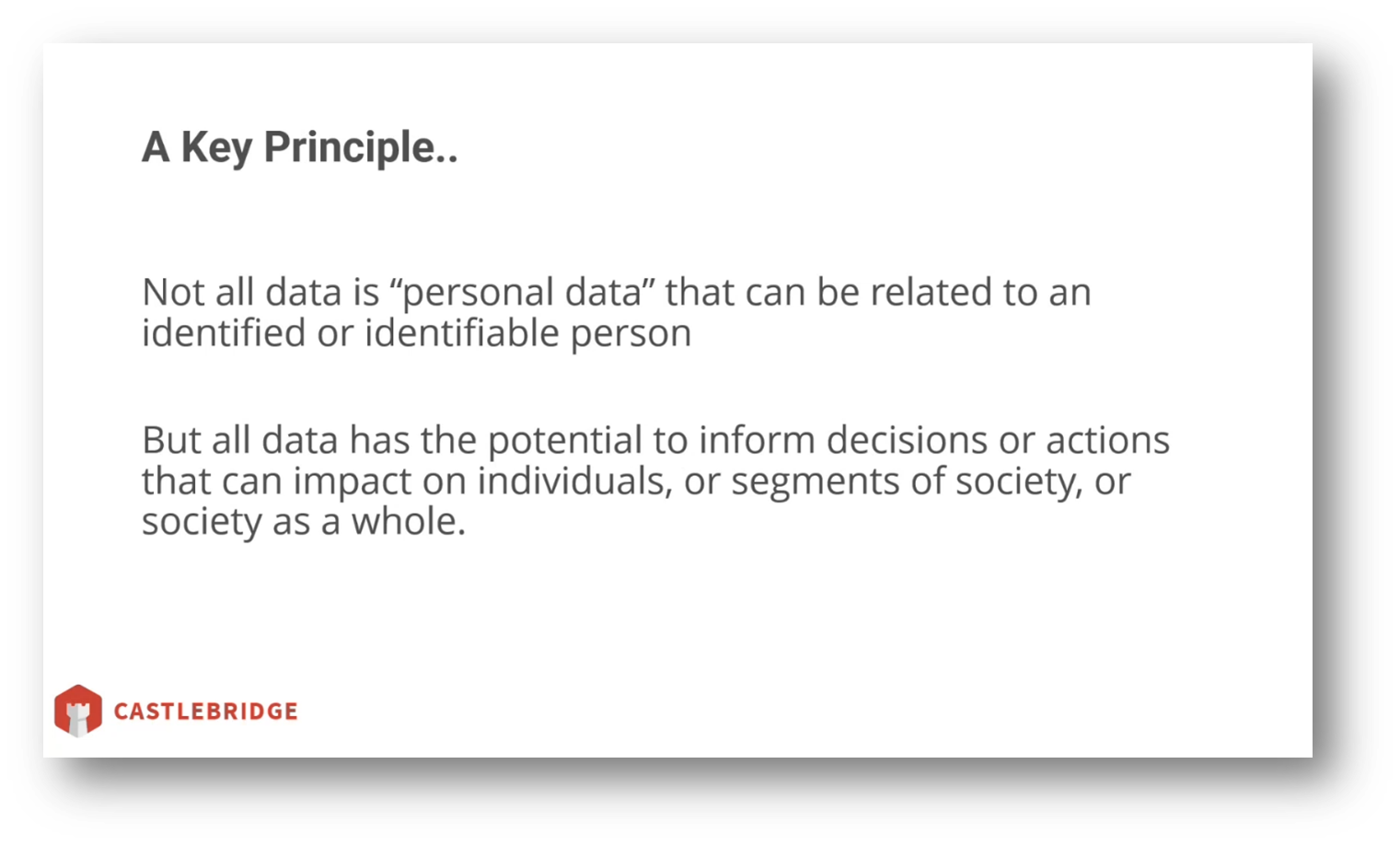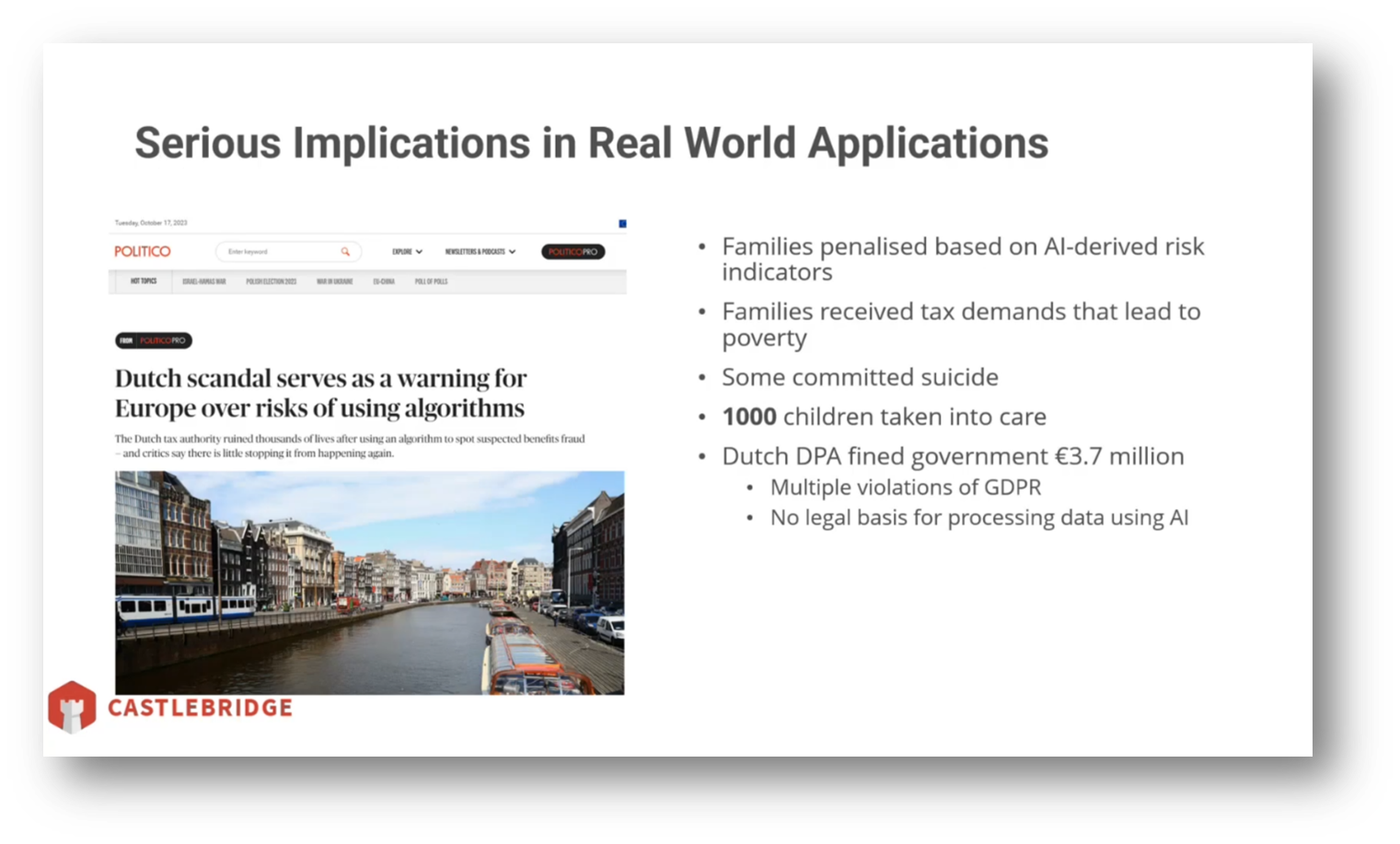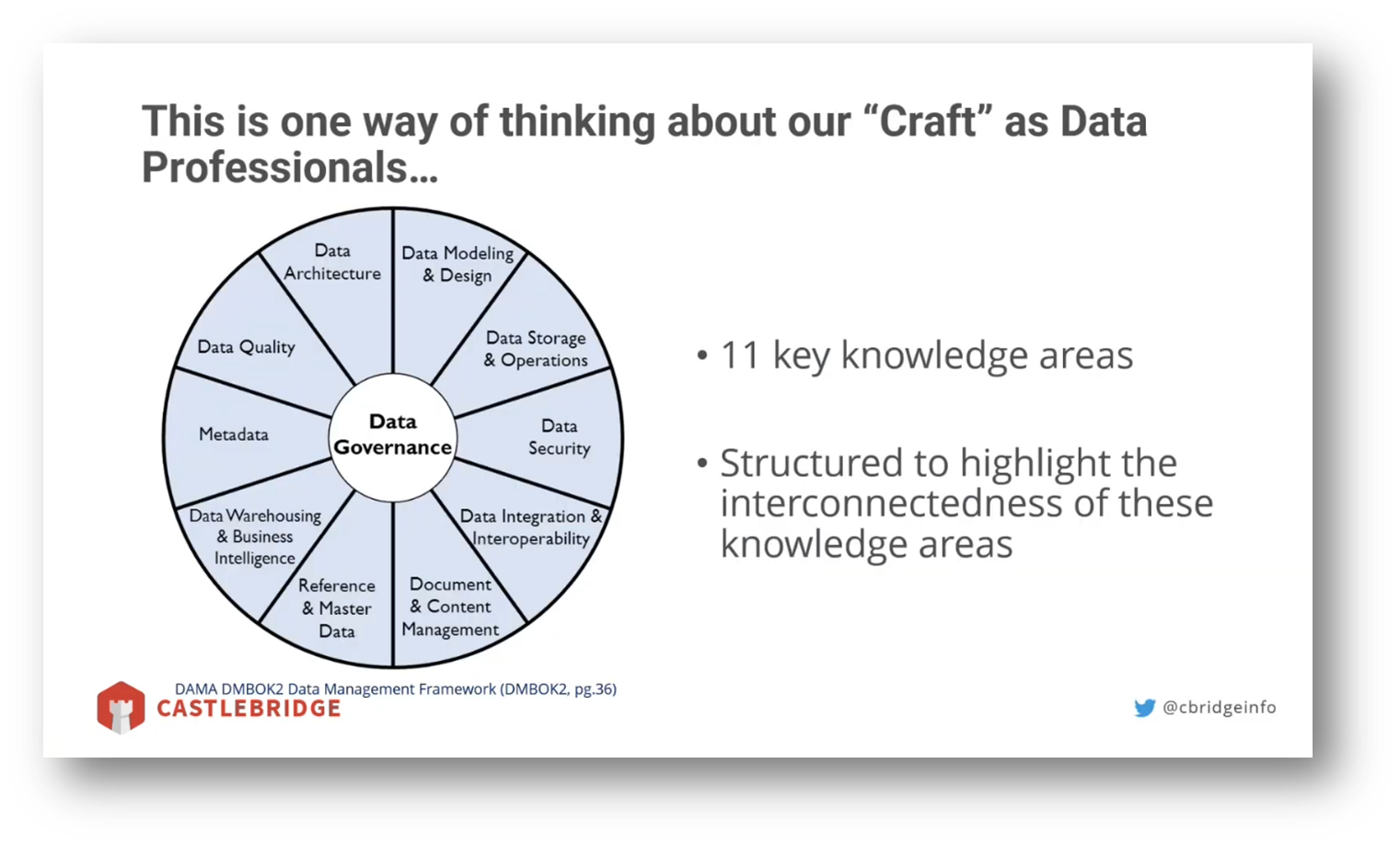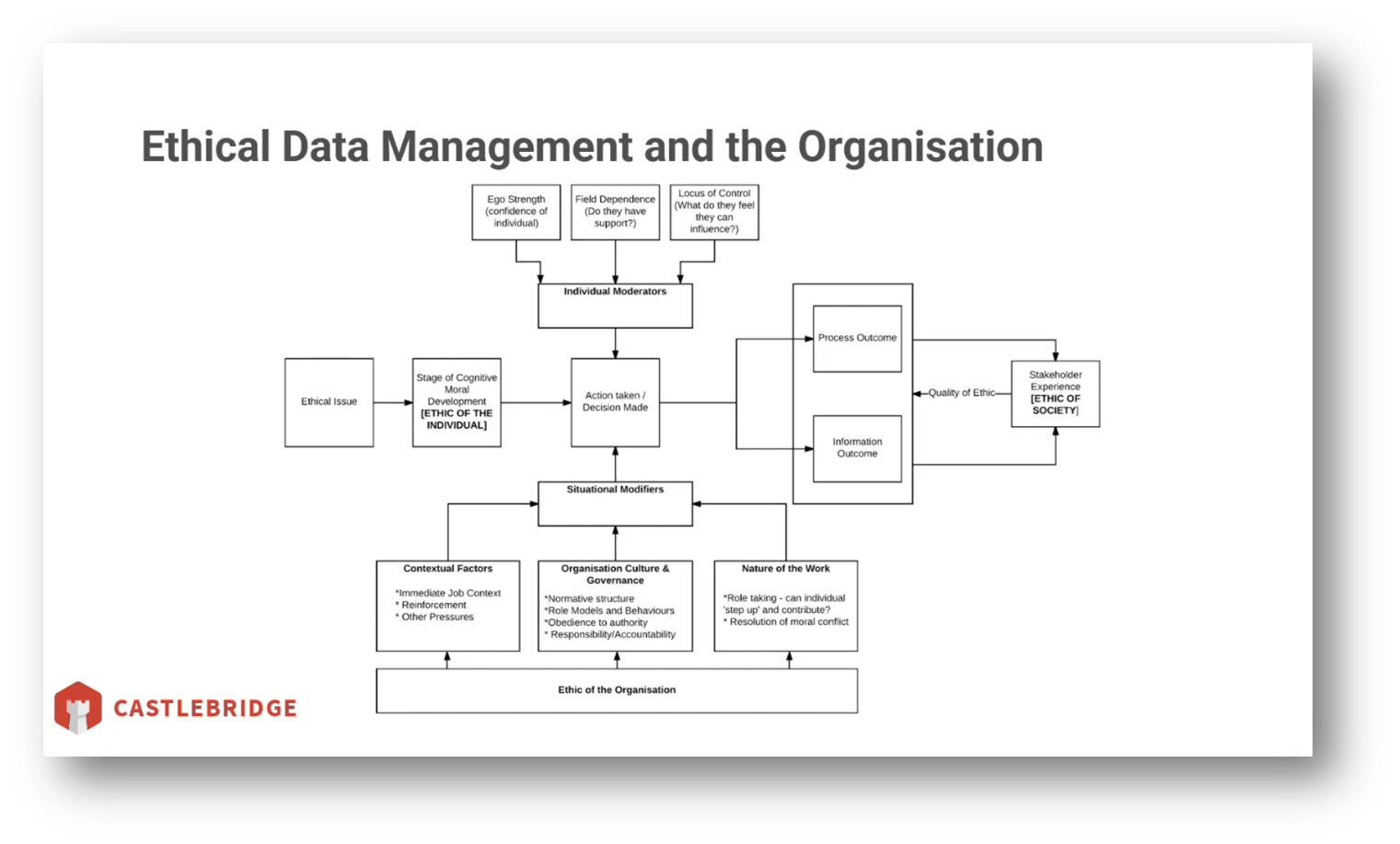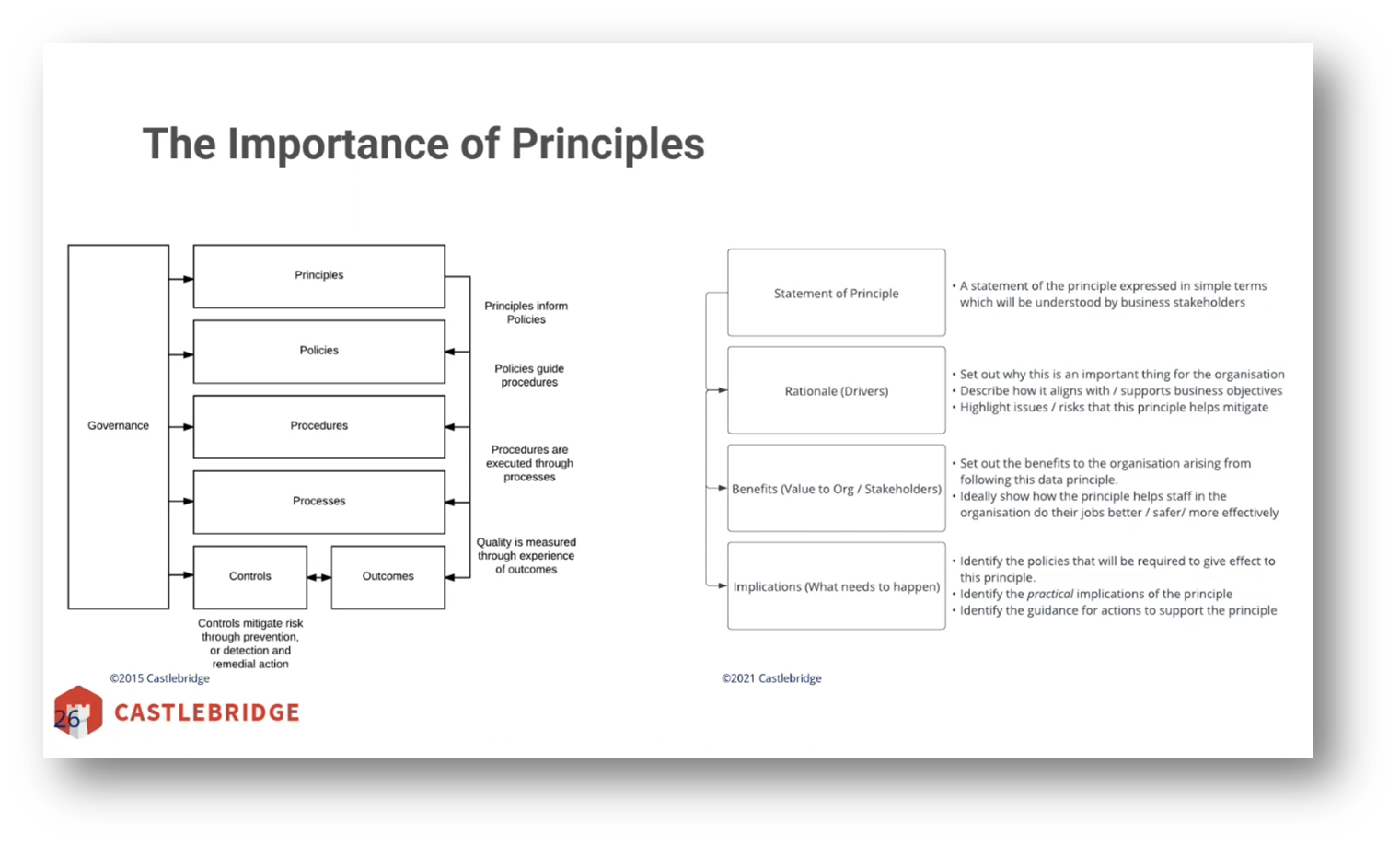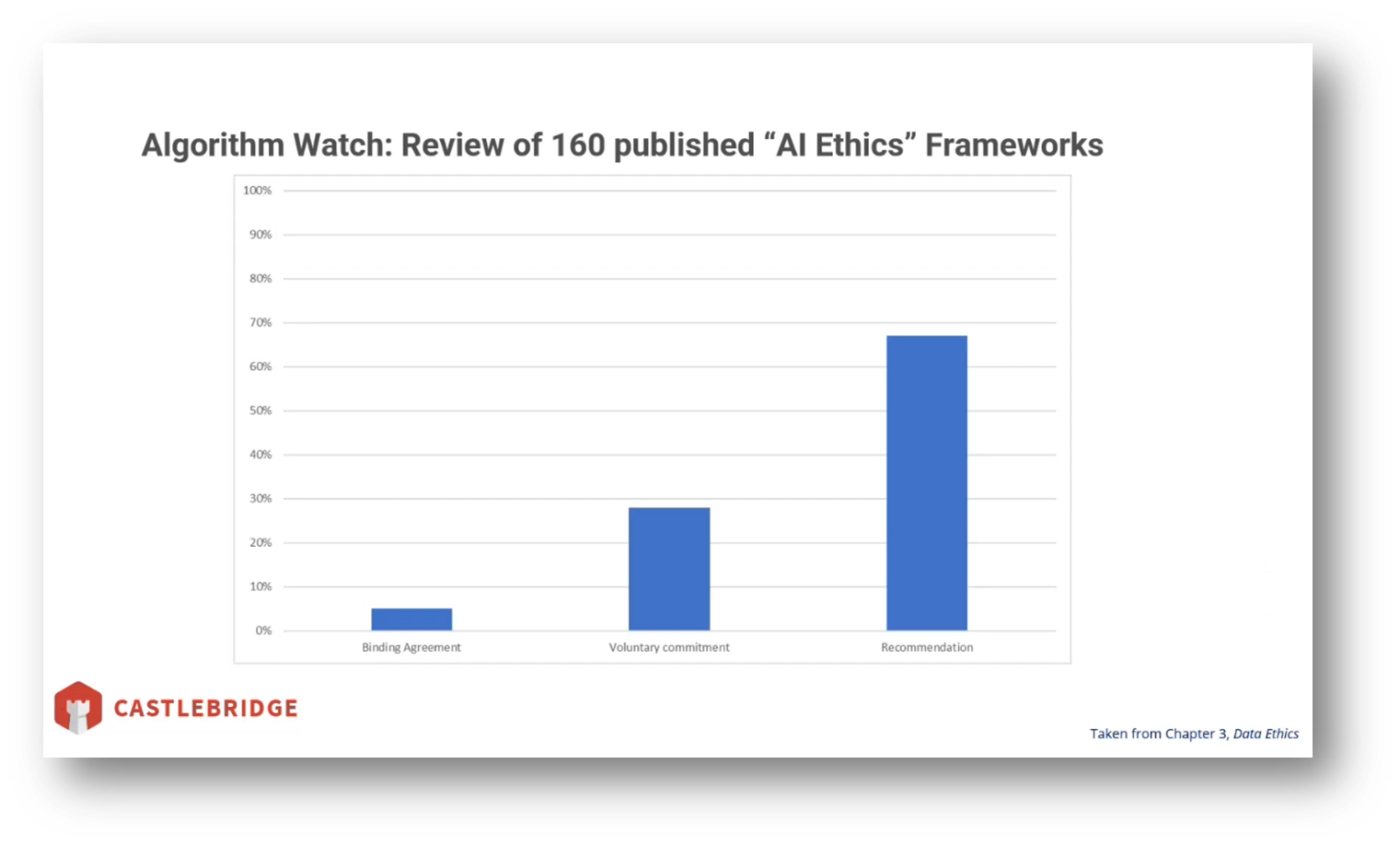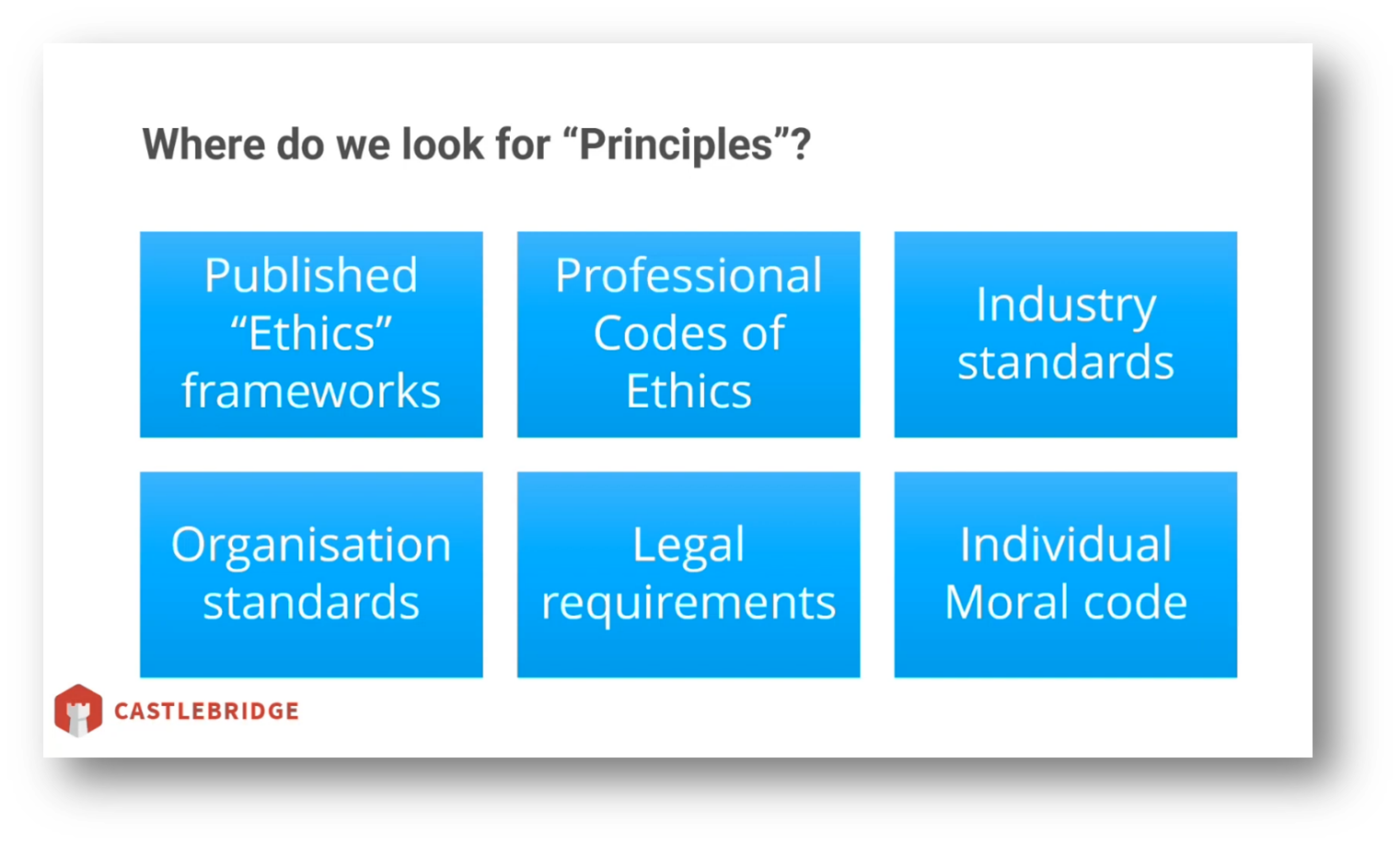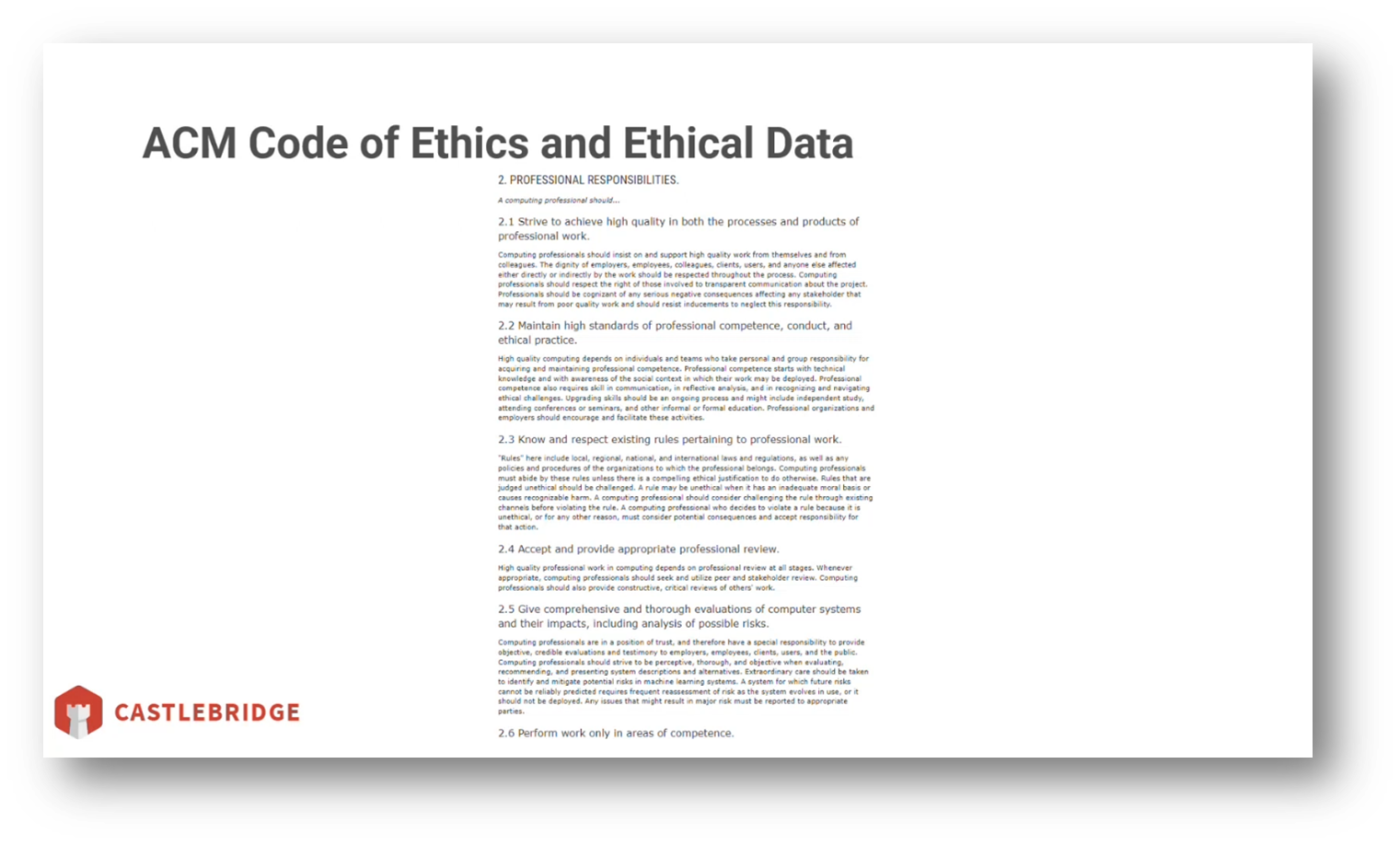Ethics & Data It's about People with Daragh O Brien
Executive Summary
This webinar covers a range of topics, including the importance of ethical Data Management, professional ethics frameworks and principles, the ACM Code of Ethics, ethical implications of Data Management, and the ethical use of technology in professional practice. Daragh O Brien discusses the challenges of ethical Data Management and the balance between individual rights and society in terms of ethics and governance. Additionally, he explores industry ethics and Data Governance, AI policy and ethical controls, and the ethical implications of implementing large language models. The webinar discusses ethical considerations in Data Management, cultural and philosophical contexts, data personalisation, and the communication of information to diverse audiences.
Webinar Details:
Title: Ethics & Data: It's about People with Daragh O Brien
Date: 23 May 2024
Presenter: Daragh O Brien
Meetup Group: Big Data & Data Science
Write-up Author: Howard Diesel
Contents
Executive Summary
Webinar Details
Introduction of Daragh O Brien and his Book
The Story of René Carmille
René Carmille and Data Ethics
Ethical Questions in Data Management
Ethical Considerations in Cultural and Philosophical Contexts
Ethical Challenges in Data Management
Importance of Ethical Data Use
Ethical Considerations in Data Management
Ethical Implications of Data Management
Ethical Data Management and Principles
Professional Ethics Frameworks and Principles
ACM Code of Ethics and Ethical Responsibilities in Computing
Ethical Use of Technology
Importance of Ethics in Technology
Professional Responsibility and Ethics
Balancing Individual Rights and Society in Ethics and Governance
Industry Ethics and Data Governance
Ethics and Personalization of Data
Considerations for Communicating Information to Diverse Audiences
AI Policy and Ethical Controls
Microsoft Co-Pilot and Large Language Models
Data Management and AI Impact
Introduction of Daragh O Brien and his Book
Howard opens the webinar by noting that a sponsored giveaway of one of Daragh's books will be given away to one of the attendees. Howard shares that this is Daragh O Brien's first book, "Ethical Data and Information Management," and that the title is an excellent resource for learning about ethics. Additionally, Howard shares that he is eager for the release of Daragh's upcoming second book. Daragh shares that there have been changes in the book titles due to the publisher's realisation about keyword stuffing.
Figure 1 Copyright Notice
Figure 2 About the Speaker
Figure 3 Speakers Everyday Thoughts
The Story of René Carmille
Daragh shares on a historical figure, René Carmille, a French artillery officer turned statistician. Carmille played a pivotal role in modernising Data Management practices in the French Civil Service during the early 20th century. Daragh shares that Carmille introduced punch card tabulation machines for statistical information gathering and was an early advocate for computing, driving digital transformation in public sector organisations. Notably, Carmille stood firm in his refusal to include questions about citizens' religion in a census, citing the secular nature of the French state and asserting that such information was unnecessary for demographic purposes or to meet citizens' needs. This principled stance marks an early instance of data ethics in public governance.
Figure 4 Introduction Slide
Figure 5 René Carmille
René Carmille and Data Ethics
Carmille demonstrated the ethical implications of Data Management during World War II. His action of disabling pin number 13 on card readers disrupted data collection and maintained records of deceased individuals, aided resistance fighters and refugees. Additionally, Daragh notes John Ladley, who emphasises the profound impact of data on human existence and urges Data Management professionals to consider ethics in their daily roles. The challenge lies in navigating various types of ethics, such as AI, data, and business ethics, and applying them appropriately within specific contexts.
Figure 6 The Challenge
Figure 7 The Importance of Principles
Figure 8 Ethics “Schmethics"
Ethical Questions in Data Management
Professionals in Data Management are obligated to provide an objective assessment of proposed technology and should refrain from gathering customer data for a new purpose without ethical considerations, even if it may benefit the business. Data ethics encompass computer ethics, AI ethics, and digital ethics, with digital ethics involving using digital technologies to support data usage. Daragh notes that ethical considerations extend beyond the organisation and focus on individual character and behaviour, emphasising the needs and interests of others. The Markkula Center for Applied Ethics defines ethics as the standards and practices guiding human behaviour in various situations, encompassing individual character and the collective ethics of an organisation. Importantly, ethics is not synonymous with religion or philosophical beliefs and is not solely based on legal requirements.
Figure 9 Ethics “Schmethics” Expanded
Figure 10 Ethical Data Management
Ethical Considerations in Cultural and Philosophical Contexts
Daragh shares that the definition of ethical behaviour has always been evolving, presently condemning practices like child labour, which previously was seen otherwise. Additionally, he notes how this present-day definition includes using AIs to generate someone's voice. Western European philosophical beliefs dominate discussions on data ethics, but non-Western ethical frames, like African data protection law, offer alternative viewpoints. It's important to recognise that there's no universal ethical standard, and cultural perspectives can highlight both common ground and significant differences. The real challenge lies in translating theoretical ethics into practical decision-making.
Figure 11 “What is Ethics?”
Figure 12 Episteme to Phronesis
Ethical Challenges in Data Management
Understanding data ethics in organisations and society is a complex task due to the vast amount of data and evolving theoretical principles. The challenge lies in bridging theoretical principles with practical application, as illustrated by Plato's use of technology to create tools, which, Daragh notes jokingly, the example of an AI-generated image that highlights the technological shortcomings. Criticism of the narrow definition of data ethics, which focuses on protecting personally identifiable information, suggests that all data raising ethical questions has the potential to impact people and society, regardless of its direct relation to individuals. Ethical Data Management evaluates data practices that could adversely impact people or society, emphasising that while not all data is personal, all data has the potential to influence people and society.
Figure 13 AI-generated image of Episteme
Figure 14 Example of a definition for Data Ethics
Importance of Ethical Data Use
The responsible use of data is crucial for informing decisions and actions that can impact individuals and recording events and human existence is essential for effective data use. Recent examples of the misuse of AI systems in the Netherlands and the UK post office scandal highlight ethical and legal violations and the blind belief in the infallibility of systems. These instances underscore the importance of considering the ethical implications of data use. The concept of the "ethical onion," as described in a book, outlines ethical layers that include the ethic of the individual, the ethic of the team or tribe, the ethic of the organisation, and the ethic of society. This framework emphasises the need to consider ethical implications at various levels when utilising data for decision-making and actions.
Figure 15 Ethical Data Management Definition
Figure 16 A Key Principle in Handling Data
Figure 17 Real World Example of Application of Bias Data
Figure 18 "The Ethical Onion"
Ethical Considerations in Data Management
Society's values and ethical principles are reflected in individuals and can evolve as people become more aware of information handling and management risks. Daragh shares the "Ethical Onion" diagram and how it illustrates how ethical considerations involve balancing competing interests, becoming increasingly complex as different layers are peeled away. Bridging the gap between principles and practices involves technique or craft, defined in the Data Management Body of Knowledge (DMBoK), which includes about 140 to 200 frameworks for AI ethics but is challenging to translate into actionable principles. These disciplines can help make ethical decisions, such as developing a data model to inform query efficiency and considering ethical implications related to energy consumption, data quality, bias issues in AI models, and the encoding of ethical values in Metadata.
Figure 19 “Bridging the Gap Between Episteme and Phronesis”
Figure 20 DAMA DMBOK2 Data Management Framework
Figure 21 Ethics through the DMBOK Lens
Ethical Implications of Data Management
Daragh touches on various important aspects related to ethical Data Management and decision-making. He notes the ethical implications of Metadata Management, individual perspectives in Data Governance, and Linda Klebe Trevino's model of ethical decision-making in business ethics. Daragh also emphasises the historical and archival value of documented content management, focusing on its significance for government organisations. Additionally, he explores the impact of organisational culture and governance on individual behaviour and ethical outcomes. He also addresses the influence of individual egos and organisational controls on Data Management ethics.
Figure 22 Ethical Data Management and the Organisation
Ethical Data Management and Principles
Ethical Data Management involves examining an organisation's governance structures, values, rewards, and incentives. The Hollywood writers' strike is one example of successful negotiation around the ethical use of Artificial Intelligence. Clear principles with strong rationale, benefits, and implications are essential for ethical decision-making within an organisation. For instance, aiming for Net Zero carbon by 2030 is an ethical principle that optimises energy consumption and environmental obligations.
Figure 23 Article on Hollywood Entertainment Writers and AI being used in the industry
Figure 24 The Importance of Principles
Professional Ethics Frameworks and Principles
Daragh shares a study from 2020; he notes that it was found that only 5% of AI ethics frameworks are legally binding, with less than 10% being voluntary commitments and the rest being recommendations. Professionals are encouraged to apply these recommendations to their specific area of work, as it's impractical to address every issue. It is suggested to look for ethical principles in various sources such as published ethics frameworks, industry standards, legislation, personal moral code, and professional codes of ethics. Professional bodies and associations, like DAMA South Africa, play a crucial role in supporting individuals and applying collective pressure on organisations to uphold ethical standards. Additionally, education and training are important for developing individual ethics, and professionals can influence society through collective action and communication, such as writing letters to the editor.
Figure 25 Graph: “AI Ethics”
Figure 26 Where do we look for “Principles”?
Figure 27 Professional Bodies and Associations
Figure 28 ACM Code of Ethics
Figure 29 Ethics, a Concern for Data Professionals
ACM Code of Ethics and Ethical Responsibilities in Computing
The ACM Code of Ethics mandates thorough evaluations of computer systems and their effects, including risk analysis. At the same time, members must raise concerns about potential risks associated with new technology. Implementing proper control and governance of unstructured data is crucial to minimise the risks of unintended data disclosures. Large Language Models (LLMs) should be rigorously assessed for efficiency and potential risk mitigation strategies, including data modelling and content and Metadata Management. Advancements like LLMs are transforming traditional job roles, such as data modelling and data storage and processing, significantly contributing to greenhouse gas emissions, with inefficiencies in data operations and quality issues substantially impacting environmental footprint.
Ethical Use of Technology
Professional bodies and trade unions are expressing growing concerns about using Artificial Intelligence in the workplace. At their annual conferences, the Public Sector Workers Union and Financial Services Union raised numerous ethical issues regarding AI, particularly highlighting Daragh shares with caution Microsoft's launch of Microsoft Recall as part of Co-Pilot, which captures desktop screenshots. Additionally, Daragh emphasises a call for a shift in focus from the benefits of data processing to ethical considerations, emphasising the importance of prioritising humanity in data processing. Despite the availability of numerous principles and frameworks for data ethics, the challenge lies in translating them into practical professional actions. Data professionals are urged to objectively evaluate the risks and benefits of technology, ensuring that data serves humans effectively while also considering the potential impact of technology on future generations' understanding of fundamental principles and skills in the workforce.
Figure 30 Ethics and AI
Figure 31 Key Takeaways
Importance of Ethics in Technology
Understanding the technique, skills, and discipline involved in technological advancements is crucial to comprehending how technology works. When faced with ethical choices, it's important to consider the implications and make the most ethically responsible decision. Using Ubuntu and different ethical frameworks in technology and ethical papers is an exciting and evolving field. Daragh notes that Ethical Literacy and continuous improvement are crucial in the field of technology ethics and that educating people on how data and systems work to improve ethical literacy in society is important. Understanding the inner workings of systems like open AI and large language models and the limitations and capabilities of predictive algorithms is essential for ethical decision-making in technology.
Professional Responsibility and Ethics
Daragh shares the experience of high school students who benefit from learning about file planning, data classification, and Metadata to better understand technology. Professionals in various fields, such as engineering, design, law, and management, face personal liability when signing off on designs, emphasising the need for diligence in their work. This responsibility, Daragh notes, is particularly evident in roller coaster design, where individuals have personal stakes in ensuring safety and functionality before public use. Ethical considerations also play a crucial role, as sacrificing individual benefits for the greater good requires careful evaluation of competing interests and group rights.
Balancing Individual Rights and Society in Ethics and Governance
The challenge of balancing individual and group rights is fundamental to democracy as societies evolve and transition from nomadic to settled communities. Similarly, Data Governance requires a delicate balance between individual data rights and organisational interests. Oversight functions, like the Data Protection Officer, are essential in integrating ethics into organisational culture. Daragh notes that his book also includes a suggested model for a data ethics forum structure derived from early work with a Nordic telecoms company to facilitate further discussion on the topic.
Industry Ethics and Data Governance
Organisational implementation challenges often arise from the attempt to apply off-the-shelf models without considering the organisational design. The industry must recognise the power of data scientists and prioritise upholding integrity. Data scientists should also emphasise the scientific aspect of their role and undergo training in scientific and research ethics. Additionally, the industry must acknowledge the potential for unethical actions and learn from patterns to prevent such behaviours.
Ethics and Personalization of Data
Data is ultimately about people, and it's crucial to remember that all data activities are somehow connected to individuals. Personalising data can help prevent unethical behaviours, such as using depersonalised customer data for unethical actions. Ethical impact assessments (EIAs) are vital in ensuring that data processing is conducted ethically, and it's important to proactively identify potential ethical issues and consider the impact on different groups of people. Emphasising diversity and inclusion in data-related work is essential to gaining varied perspectives and preventing ethical problems from lacking representation. Furthermore, ethical considerations come into play when presenting data differently for various audiences, particularly if it alters the meaning or outcome of the information; however, modifying the presentation to enhance communication and meet the needs of different audiences can be ethical.
Considerations for Communicating Information to Diverse Audiences
When communicating information to a diverse audience, it's crucial to consider how individuals process visual and numerical data and to be mindful of ethical considerations when using colour to convey information. This is particularly important due to the prevalence of colour blindness, which affects approximately 23% of European men. Making information accessible through electronic versions of materials and practical Data Management controls is essential. Additionally, there is growing interest in understanding the impact of technologies like Microsoft Co-Pilot, especially in terms of accessing and utilising organisational data while considering security and risks.
AI Policy and Ethical Controls
The United Nations has been developing an AI regulatory framework for Ghana, focusing on the interplay between principles, practices, and the role of legislation in the multi-year framework rollout. Daragh notes that his book, which touches on the ethics of AI policy, is available on koganpage.com or Amazon. Organisational, procedural checks and balances are emphasised as a key part of ethical controls and safeguards, with the integration of ethical controls into standard Data Governance processes being deemed vital. Defining automated controls can raise ethical questions regarding what and how to measure, and workplace monitoring requires thoughtful consideration of ethical questions about tracking employees’ actions and whereabouts. It is suggested that measuring outputs rather than inputs can be a more ethical and effective approach to evaluating performance, and designing controls involves thoughtful consideration of data and objectives.
Microsoft Co-Pilot and Large Language Models
The implementation of control metrics requires careful consideration of invasiveness and ethical impact. While preventative invasiveness may cause project delays, it allows for thorough risk assessment. Daragh mentions that Microsoft's Co-Pilot supplements existing Information Management in the SharePoint environment, emphasising the need for appropriate Metadata, access control, and document management. It is important to note that LLMs are unsuitable for direct database querying and require significant data and records management preparation for effective use. Neglecting proper preparation for Co-Pilot implementation can result in technical debt, as evidenced by a UK local government agency's experience. Furthermore, data models are crucial in connecting and curating datasets to enable self-service policies and procedures.
Data Management and AI Impact
The impact of AI and language models on Data Management professionals is significant, with the potential to revolutionise their practices. Daragh notes that companies must ensure accurate representation of minority groups in their data models to prevent discrimination and uncover new opportunities. Lastly, he jokes about the Irish insurance industry's practice of reducing premiums when a spouse is listed as a named driver because, for him, it raises concerns about the accuracy and fairness of their data model.
If you want to receive the recording, kindly contact Debbie (social@modelwaresystems.com)
Don’t forget to join our exciting LinkedIn and Meetup data communities not to miss out!




